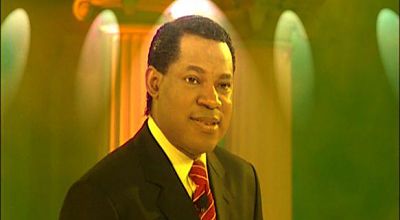False Prophets, Foreign Charlatans and Global Deception
When I arrived in eastern Europe a few days ago I learned that Romanian Christians have quite a spiritual battle on their hands. Believers here struggled for years under communism. But now that they are free, they face an equally sinister struggle against cults, New Age teachings and—worst of all—charlatans who claim to be powerful Christian prophets.
One of the most controversial figures in Romania today is Chris Oyakhilome, a Nigerian broadcaster and faith healer who lives in South Africa. Although this smooth-talking preacher has never been to Romania, his influence has grown through his TV programs and books. Meanwhile, some gullible Romanian church leaders have visited his ministry base in Johannesburg and then returned to impart his miracle power to their congregations.
But Oyakhilome’s “power” is questionable—and it is spreading not only in eastern Europe but in many other parts of the world, including the United States.
You may have never heard of Oyakhilome, but don’t be surprised if his programs soon appear on a Christian television station near you. The founder of a movement called Christ Embassy, which began in Lagos, Nigeria, Oyakhilome already has 16 churches in the U.S., mostly attracting African immigrants in cities such as Dallas, Houston, Washington, D.C., and Atlanta. He has 39 churches in the United Kingdom (where many Nigerians live) and 18 in Canada, and his daily devotional books called Rhapsody of Realities are supposedly available in 70 languages.
Why is he so controversial? Consider a few facts:
- Nigerian Christians have long complained that Christ Embassy is a cult—mainly because members reportedly are forced to give money in offerings and are pressured to marry only within their church.
- Oyakhilome was accused of engineering a money laundering scheme in Nigeria in 2010, and questions swirl around his finances because of his glamorous lifestyle.
- Theologians and cult-monitoring groups have documented their concerns about Oyakhilome’s “New Creation” doctrine—a form of gnosticism that says after a person becomes a Christian, any sin they commit is only in the body and will not affect the spirit. Oyakhilome mixes this doctrine with a hybrid version of the American prosperity gospel, claiming that God wants all people to be rich.
- Oyakhilome’s reputation as a faith healer was tarnished badly in 2008 in Johannesburg when a man told a Soweto newspaper that Christ Embassy offered him more than $1,200 (U.S.) to sit in a wheelchair and pretend to be crippled until Oyakhilome prayed for him. The man went to the media instead of taking the money, sparking concerns that healings were being faked to impress growing crowds.
- Perhaps most disturbing is Oyakhilome’s connection with T.B. Joshua, a Nigerian occult healer who leads a mysterious group called The Synagogue, Church of All Nations. Joshua, who claims his mother carried him in her womb for 15 months because he was a special prophet, mixes Pentecostal fervor with pagan spirituality. After coming under Joshua’s influence a few years ago, Oyakhilome began copying some of his bizarre mannerisms.
When I came to Romania last week I was surprised to learn how many Christians here had come under Oyakhilome’s influence. But as I did further research I found that Oyakhilome’s popularity is growing far beyond eastern Europe. Thanks to YouTube, Internet TV channels and a public that is often biblically illiterate, Christians today are as vulnerable as ever to religious impostors and deceptive con-artists.
Jude, the brother of Jesus, warned us 2,000 years ago about such false prophets. “For certain persons have crept in unnoticed … ungodly persons who turn the grace of our God into licentiousness and deny our only Master and Lord, Jesus Christ” (Jude 4, NASB). Paul also warned that people will demand false teachers to fulfill their lusts, and that those teachers will “turn away their ears from the truth” (2 Tim. 4:3-4). Those ancient words are painfully relevant today.
Some Romanian church leaders have sounded an alarm. One of them, Ioan Peia, released a public warning in 2011 listing various false doctrines promoted by Oyakhilome. Peia urged Romanian church leaders to “repent and ask God’s forgiveness, and ask the forgiveness of our brothers, because we allowed a part of these teachings to be spread among us and through us.”
I feel I must sound an alarm as well. As much as I want to see healing miracles restored to the church today, I’m not willing to fling open the door to deception. The devil can fake miracles, and if we don’t apply discernment in this vulnerable hour, impostors will sneak into the church and unleash their doctrines—with deadly results. Please don’t be duped by counterfeits.
J. Lee Grady is the former editor of Charisma and the director of The Mordecai Project. You can follow him on Twitter at leegrady.















































